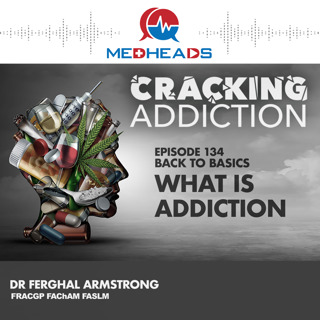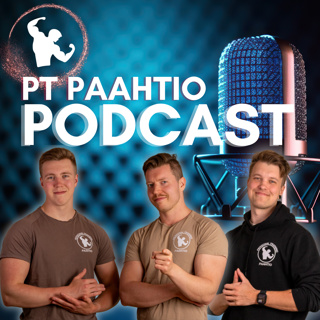
Opioid use disorder and pregnancy
Episode 18 of Cracking Addiction explores the management of opioid use disorder in pregnancy.Most women presenting with opioid dependence are of child-bearing age with chaotic drug use predisposes to amenorrhoea. The initiation of opioid substitution therapy (OST) facilitates stability and reinstatement of regular menstrual cycles and thus OST is a risk factor for unplanned pregnancy. About Meducate ®Meducate provides online education for doctors, clinicians, health professionals and the public.See the website to browse the many different talks and courses availablehttps://www.meducate.com.au
1 Joulu 202117min
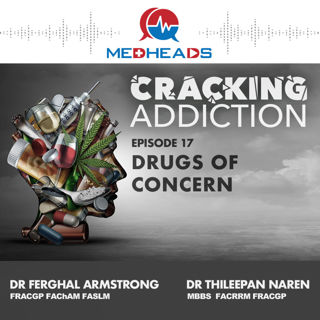
Drugs of Concern
Episode 17 of Cracking Addiction explores the range of drugs one can become dependent upon or addicted to and how to identify someone at risk of prescription drug aberrancy.About Meducate ®Meducate provides online education for doctors, clinicians, health professionals and the public.See the website to browse the many different talks and courses availablehttps://www.meducate.com.au
24 Marras 202121min
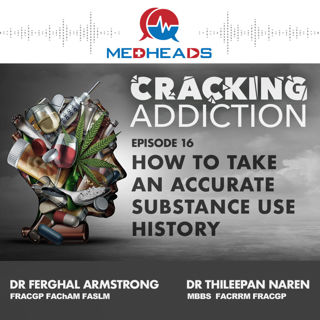
How to take an accurate substance use history
How to take an accurate substance use history.Taking an accurate substance use history is of great importance in the management of addiction. There are a number of strategies that one could use but the most important part of history taking is that of demeanour and empathy. The best results and most accurate information are often obtained when one treats one’s patients with human empathy and in a non-judgemental manner. About Meducate ®Meducate provides online education for doctors, clinicians, health professionals and the public.See the website to browse the many different talks and courses availablehttps://www.meducate.com.au
17 Marras 202115min
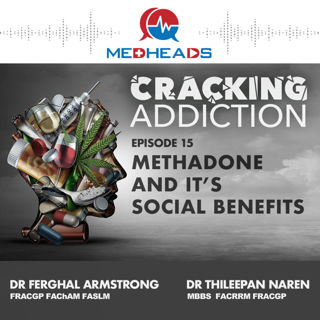
Methadone and it’s social benefits
Cracking Addiction explores the social and societal benefits of Methadone. Methadone has a number of benefits that extend from not only the person taking it but also society as a whole. Methadone decreases criminality with the overall reduction in convictions and cautions estimated to be at 10% for each six months enrolled in methadone maintenance therapy with patients in continuous treatment receiving the best outcomes.
10 Marras 202115min

Methadone in Opioid Agonist Therapy
Ferghal & Thileepan explore the role of Methadone in opioid agonist therapy.
3 Marras 202113min
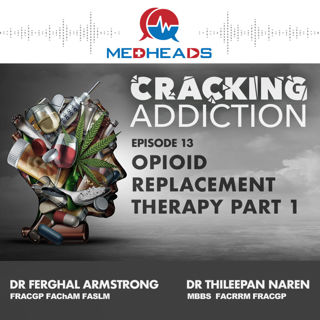
Opioid Replacement Therapy Part 1
Episode 13 of Cracking Addiction covers opioid replacement therapy (ORT) and the philosophy and evidence behind this highly effective treatment for patients with opioid use disorder.
26 Loka 202119min

Dependence, Addiction and Opioid Use Disorder
In this episode of Cracking Addiction we cover the difference between dependence and addiction, the intricacies of addiction and provide a definition of opioid use disorder
20 Loka 202113min
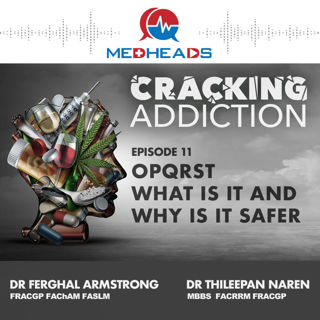
OPQRST
Cracking Addiction covers the OPQRST framework and how to use this framework to prescribe safely to patients on opioid medications.
13 Loka 202118min
